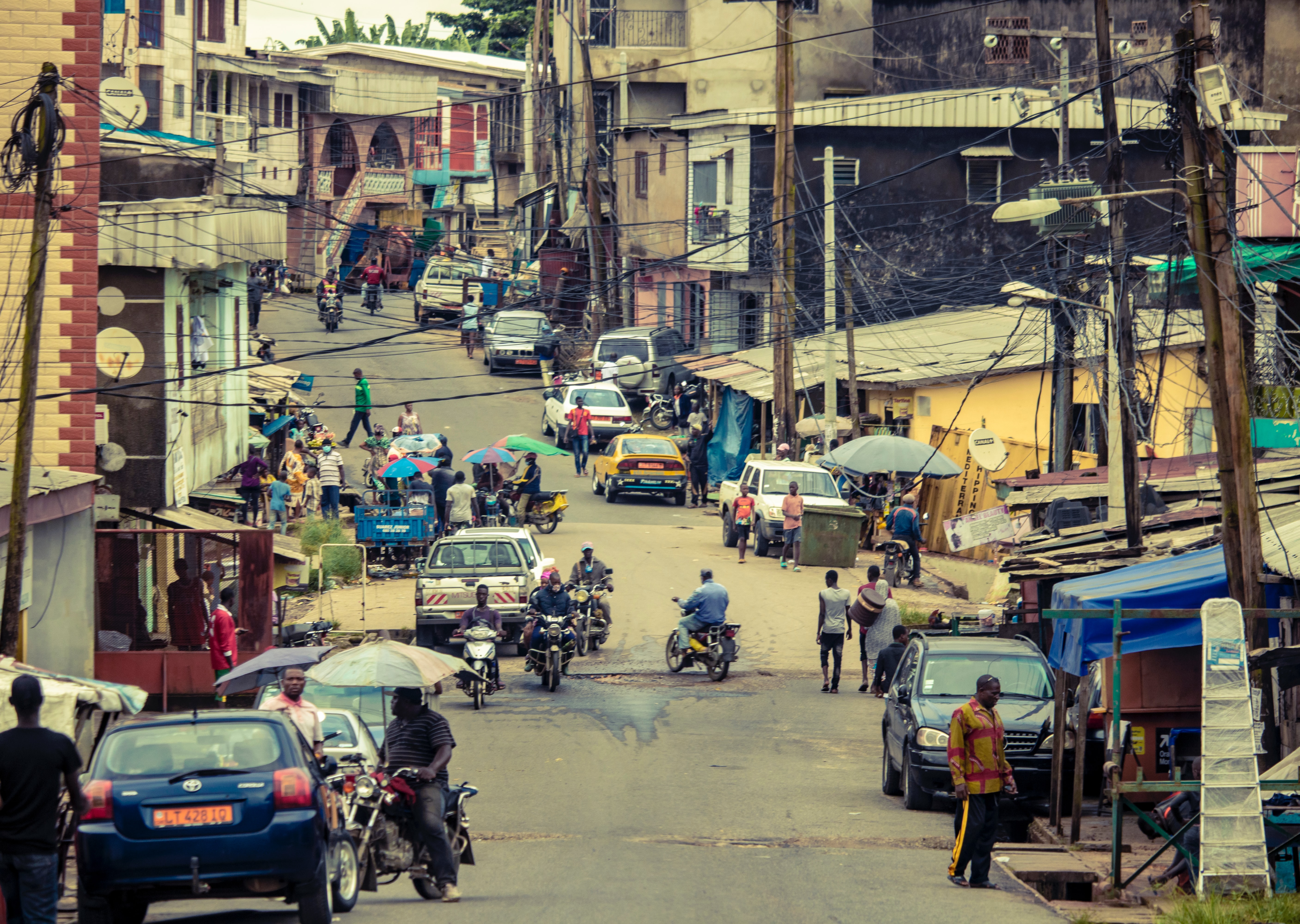Yaoundé adopts a coherent plan to renovate its road network

With rapid economic and demographic growth, Yaoundé is tackling the most pressing issues and has adopted a coherent plan to renovate the road network. As the project "Cœur de Ville", an ambitious part from the Yaoundé's Sustainable Mobility Plan, is moving into implementation with the support and financing of AFD, learn more about our ambitions for mobility in Yaoundé.
Yaoundé: a challenging context for urban mobility
With rapid economic and demographic growth, the population of Yaoundé will reach 5.5 million inhabitants in 2035, and the urban area will reach a radius of 25 km by the end of the century. The increase in the demand for travel, and in the level of motorisation accompanying the rise in income, may rapidly lead to the saturation of the existing system.
The city already suffers from significant traffic bottlenecks due to the lack of well connected asphalted roads, and various modes of transport compete for road space. Hence, travel times will increase significantly along with the overall cost of travel, due to the consumption of more fuel by private vehicles, taxis and public transports.
The Sustainable Urban Mobility Plan diagnosis has also allowed to identify other important issues, related to pollution, safety and gender disparities:
- The high proportion of very old vehicles (20% are older then 20 years) contributes to a significantly increased air pollution and risk of accidents.
- Safety is an important problem, and 3/4th of the interviewed taxi drivers declared having been involved in a road accident in the two previous years.
- Women in Yaoundé make half as many journeys using private cars than men, but travel more by foot or on moto-taxis.
Taking actions to limit GHG emissions
In the short and medium term, the Sustainable Urban Mobility Plan focuses on providing a clear actionable investment plan. It also foresees a continued planning process, which will allow selecting new measures and investments, such as public transport, based on the evolution of the city and its institutions.
The main focus will be renovating the road network, a prerequisite for the development of public transport and for better use of public space. Besides infrastructure expenses, the SUMP foresees studies and reform to reorganise the current bus service, to formalise taxi and moto-taxi services and to carry on much needed institutional reforms.
The implementation of this plan will bend the curve of greenhouse gases emissions, reducing the annual emissions by 26% compared to business-as-usual in 2035. By that term, It is also expected to halve the number of traffic fatalities and allow the modal share of green modes of transport to increase, instead of being replaced by private cars and motorbikes.
Transforming mobility in Yaoundé with support from AFD
As a result of the SUMP, the pre-existing "Yaoundé Cœur de Ville" project has completely changed course. Initially conceived around the construction of a major road interchange, it now provides for the optimal development of three key intersections and their integration with the urban economical and social landscape. To this purpose, two bus stations are planned, as well as spaces dedicated to pedestrians and collective transport.
AFD is following the project closely and is providing financial support through the national government. In this case, the Republic of Cameroon benefited from an innovative financing system linked to a debt relief mechanism, allowing the conversion of debts into subsidies. The amount allocated is 66.5 million euros which will be used both for infrastructure construction and project management.
These are exciting steps for the future of the mobility in Yaoundé, and you can learn more about it in the Yaoundé SUMP summary